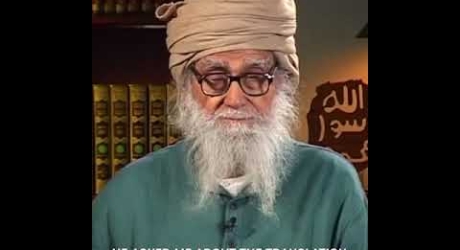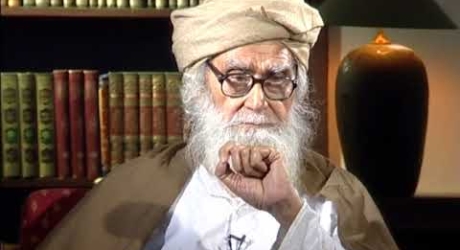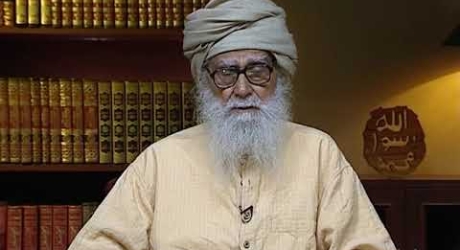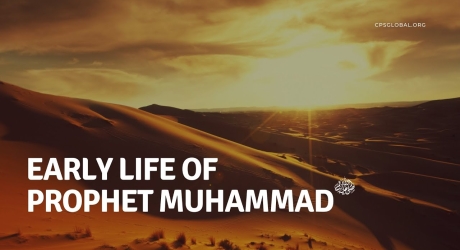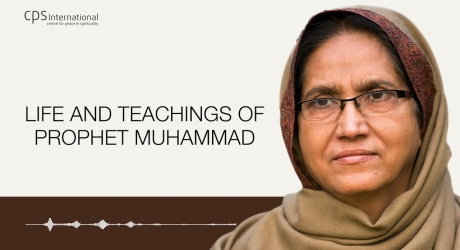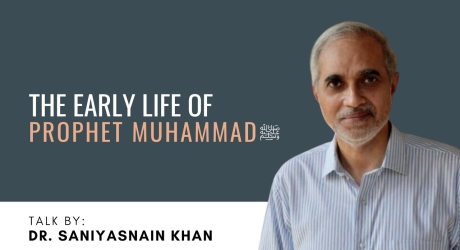The Quran says of the Prophet of Islam: “Surely you have a sublime character.” (The Quran, 68:4) Aisha, the Prophet’s wife, has provided the best commentary on this verse. Her words have been recorded in different books of hadith. Replying to a question on the character of the Prophet, Aisha, referring to this verse of the Quran, said: “His character was the Quran.” (Tafsir ibn Kathir, Vol. 8, p. 189) This shows that the most authentic picture of the Prophet of Islam is that which has been expressed in the holy scriptures. There is no doubt that the books of hadith and seerah provide an authentic source of information about the life of the Prophet. However, the Quran remains the primary source. Therefore, the picture of the Prophet, which tallies with the relevant statements made therein, must be regarded as correct. Therefore, here I propose to enlarge upon studying his life in the light of certain Quranic verses. The Quran describes the Prophet of Islam as a human being like any other. What distinguished him from others was not his being something other than human but, instead, his being a prophet and a human being. The following verses from the Quran illustrate this: ‘Holy is my Lord. I am but a human being sent as a messenger.’ (17:93) ‘I am only a human being like yourselves. It is revealed to me that your God is One God.’ (18:110) Their messengers replied, ‘We are indeed mortals like yourselves.’ (14: 11)
This is the month of Rabi-ul-awwal according to the Hijri or the Lunar Calendar. It is believed to be the month in which Prophet Muhammad was born but, this is not a historically established fact. Because at that time, Arabs neither followed the Hijri calendar nor the Christian calendar. Their calculation was based on the aam-ul-fil or the Year of the Elephant; it was the year when a king had come to
Recently I received a telephone call from a Muslim youth. He and his friends were trying to find an answer to the question of who was more beautiful: Prophet Muhammad or Prophet Yusuf and their discussion had got into a stalemate. I do not blame them for this. Such questions are the result of years of conditioning that Muslims have got accustomed to. As a result, not only the ordinary masses but even the Ulema engage themselves in such discussions. They project Prophet Muhammad as a superior prophet and do not realise that giving into such matters is a bidat or innovation as according to the following Hadith:
Don’t consider any prophet superior over any other. (Al-Bukhari)
Such a practice was not there at the time of Prophet and his Companions. It was innovated in later times. Here I am reminded of an instance when I was invited to speak on seerat or the life of the Prophet of Islam at a programme. In my speech, I spoke of Prophet’s ways, quoted Hadith and in a simple way explained his life. After my speech, a senior person came up to me and said that I had not spoken anything at all on the life of the Prophet. Responding to his statement, I referred to the Hadith and other details that I had quoted during my speech. From the reply that followed, I realised that for such people, the seerat was actually an account of the exceptional feats that Prophet had performed - miracles (mojzaat) and the various extraordinary happenings (kamalaat). What they do not realise however is that this kind of thinking is baseless. In fact at the time of printing press, story tellers used to be very rampant and several stories were construed during those days. But Muslims satiate themselves with only these stories of miracles.
Today I shall throw light on some aspects of the life of Prophet Muhammad.
Prophet’s early years
Prophet Muhammad was born in
While he was still in his mother’s womb, Prophet’s father Abdullah passed away. His mother Amena died when he was three. Hence Prophet Muhammad became an orphan at a very early age. Then his grandfather, Abdul Muttalib took him under his shield. Abdul Muttalib was a man with a strong personality. The following incident is illustrative of his courage. When Abraha had come to attack
The name Muhammad was given to the Prophet of Islam by his grandfather; he was then a member of Dar-un-nadwa, a gathering of some of the people of
At that time in
Khadeeja, a very rich lady in
Prophethood
The Prophet, before receiving Prophethood, started living in seclusion. He often went to seclusion in a cave in
It was on one such occasion that Angel Gabriel, came to Prophet Muhammad and revealed the first verse of Quran:
“Read!”
This experience shook the Prophet greatly. He immediately returned home and narrated the events to Khadeeja. She then took him to a Christian called Waraqa-bin-Naufil, who was a very learned man. Upon hearing the experience of Prophet Muhammad, he said that the angel which came to him was the same which had come to Prophet Moses and this meant that God had appointed him as His messenger. (Citing this incident, traditions often refer Waraqa-bin-Naufil as being the first believer.)
Beginning of dawah work
Prophethood marked the beginning of dawah work for Prophet Muhammad. In his first public address, the Prophet stood on a rock which was then used as a platform to warn people of the danger from other tribes approaching to attack
On one occasion, Prophet Muhammad invited the people of his family for a simple lunch (of camel milk) so that he could disseminate the message to them. After the lunch he told them about him being appointed as a messenger” of G'od and asked his family to give him their support. No senior person in the gathering got up to show his support to Prophet Muhammad. From amidst them however, a 12 year old boy, Ali, the son of Abu Talib, stood up and agreed to extend his support. The Prophet said: ‘O! Ali, “You?”’
Shirk in
Shirk or polytheism was much prevalent in
Kabah was held to be the most sacred place in
An extremely pertinent observation at this point is that the verses revealed in the Quran during this period commanded the Prophet to “purify” himself.
“Purify your garments” (74:4)
The verses revealed did not command the Prophet to purify the Kabah, despite the presence of 360 idols in it. Hence, the above verse gives us an example of a starting point for doing dawah work - in this case it was the recitation of the Quran. The Prophet therefore, ignored the idols in the Kabah and addressed the gathering by reciting the verses of the Quran.
Steady Progress
Slowly and steadily people started embracing Islam. When the leaders of
For example, poetry in those days was akin to the present day journalism. A man once came to the Prophet and ridiculed (through poetry) him by calling him as Muzzammum[1], which meant, ‘the condemned one’ instead of Muhammad which meant ‘worthy of praise.’ The Prophet only smiled and replied to one of his concerned companions that his name was Muhammad and not Muzzammum, so the curse of the man would go to the person whose name was Muzzammum and not to him as his name was Muhammad. In this way, Prophet avoided hostility.
When the number of people accepting Islam grew rapidly, the leaders became worried and made every possible effort to prevent people of
For example, a person was told that the Prophet was a magician and therefore he should avoid him. When this person went to the Kabah, he stuffed cotton in his ears in order that he could avoid listening to what the Prophet was saying. After doing so for a while, he thought that he should remove the cotton and himself go and listen to what the man claiming to be the Prophet had to say. After all, he thought he was mature enough to judge between good and bad influences. When he went, the Prophet recited the Surah Fateha from the Quran. Upon listening to this verse, that man was so moved that he said:
“You have put me in an ocean of meaning.”
This shows that the people at that time were completely on their nature and hence when truth comes before them, they immediately accept it rather than ignoring it.
Why did Meccans turn hostile to Prophet Muhammad?
A question which is often asked is that if the people of Mecca at that time of Prophet Muhammad were completely on their true nature (as in the above example), then why did the Meccans turn hostile to the Prophet and even plotted to kill him?
The reason can be understood by comparing
However, in
Here I am reminded of an instance of Khalid bin Waleed. As he was leaving for
“All the men of taste have migrated to
This incident shows that only very selected people came to the Prophet and not crowds or hoards of people as are addressed by leaders today.
Migration
When many people started accepting Islam, the leaders of
As the tribesmen plotted against Prophet Muhammad, Angel Gabriel came and warned the Prophet. He then decided to migrate. The Prophet quietly moved out of his house in the night. Hazarat Omar also migrated later; before doing so, traditions have it that he announced in the Kabah: “...whoever wants to make their children orphans or their wives widowers then they should come and stop me.”However, this was the personal style of Hazarat Omar; this is not the model for us.
The correct model for us is that of the Prophet who quietly migrated in the night without announcing and without anybody getting to know.
While going to
A Hadith with reference to the same incident says: “O Abu Bakr what do you have to say to those who have their third companion as God?”
This Hadith has lesson for all humanity. It means that God is with His believers. Muslims generally take this incident as Prophet’s fazilat or superiority. However, it is applicable to all human beings.





